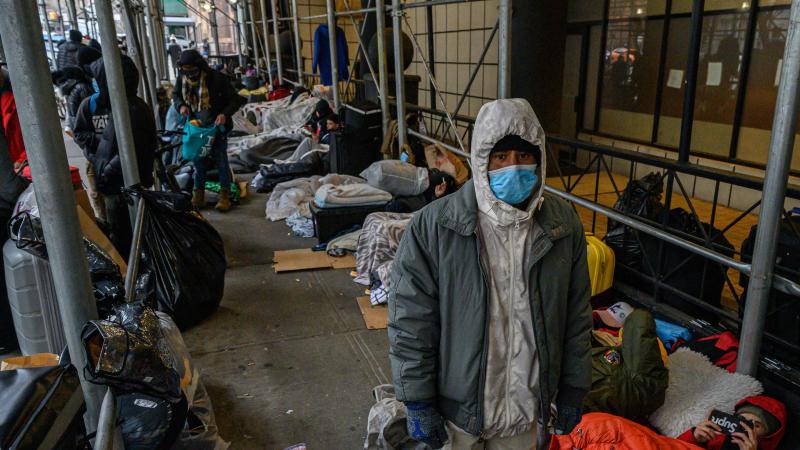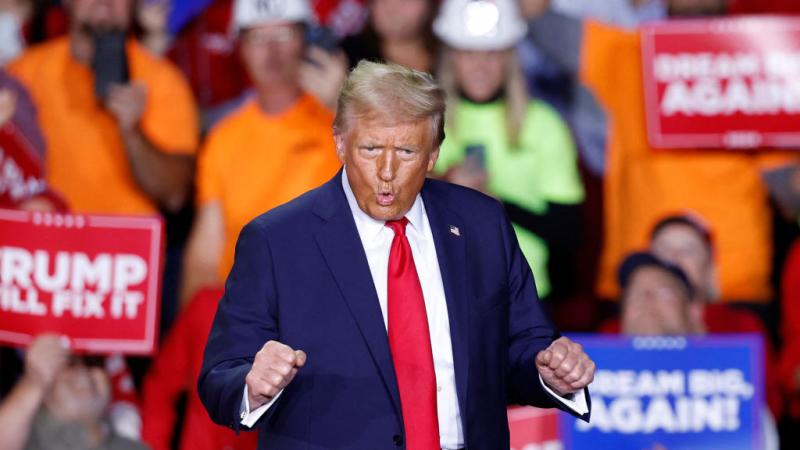Iran-backed militia claims it has sleeper cells in U.S. capital
The threats come amid a spate of cultural offerings highlighting the life and works of Iran's slain Quds Force Commander Qassem Soleimani.
Amid new cultural offerings in Iran praising the life and works of the assassinated Quds Force Commander Qassem Soleimani, a Tehran-backed militia wrote on social media that it maintains secret cells inside Washington, D.C. and other American cities.
"Resistance cells are rooted even in America and its capital," the militia posted last week on Telegram, according to the Middle East Media Research Institute [MEMRI], which monitors threats of terrorism and jihad. The militia posted the warning Mar. 2 on the Kawtheryoon Electronic Team, a network used by Iranian militia sympathizers, according to MEMRI.
In the English language version of the post, the group directed its message at the U.S. and Israeli armies.
"Know that the axis of resistance is not only in the Middle East, but is all over the world," the post reads. "The axis of resistance today is stronger than before."
In a segment directed at Israel, the post links its threats to the death of Soleimani and one of his cohorts, who were killed in a 2020 American drone strike.
"Do not think that you and the Americans, by killing Qassem Soleimani and Abu Mahdi Al-Muhandis, will survive the torment of the resistance," the militia wrote in the post.
The Pentagon said last year that the powerful commander was killed while he was in the process of planning to attack American service members and diplomats. Additionally, U.S. military officials said, "General Soleimani and his Quds Force were responsible for the deaths of hundreds of American and coalition service members and the wounding of thousands more."
The latest threats to avenge Soleimani's death come during an uptick in Iran of cultural offerings highlighting the life and works of the slain Quds force commander.
A play premiered in Tehran on Mar. 7, portraying a heroic Soleimani saving the town of Erbil from "bloodthirsty ISIS terrorists." The play, "50+One," depicts Soleimani stepping forward to save the town when the United States, the United Kingdom, and others would not.
Also this month, a poet in Iran published an anthology of elegies to Soleimani.
"From the first moment after the martyrdom of Commander Qassem Soleimani, poets were among the first groups of artists that responded to the event with their compositions, and many poetry nights were organized to commemorate him," the publisher wrote in a Mar. 7 press release. Some of the poems in the anthology describe Soleimani's "bright and attractive personality," while others call to avenge his death.
The threats and the artistic productions may be timed to maximize attention while the Roman Catholic Pope Francis is visiting Iraq, one U.S. intelligence officer suggested.
"This is a time when the world is more attentive to events in Iraq, and the region overall," the officer said. "In Tehran's eyes, this is a good time to push an agenda." In that vein, the officer noted, an Iranian official on Friday credited Soleimani for creating the security conditions that enabled the Pope to visit Iraq safely.
In the U.S. homeland, the notion of Iran-backed sleeper cells waiting to act is difficult to confirm, the intelligence officer noted. "The counter-terror folks here aren't going to blow any potential case by talking about it to the press," he said. "But in general terms, you have to take seriously any direct threat."
The Mar. 2 post on Telegram demanded that the United States withdraw all of its troops from the Middle East. The post included a photo of caskets draped with American flags.














